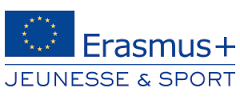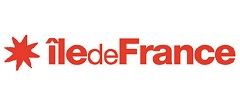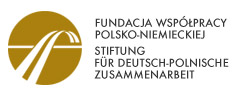Safe and Sustainable Sanitation for Women & Menstrual Hygiene
In some areas of the world, menstruation is considered as an impure and shameful act. Therefore girls are trying to hide that they are menstruating. Unfortunately, due to lack of safe facilities or supply of feminine hygiene products many young girls are forced to drop schools during their period. Each month they are deprived of their basic right, namely right to education.
| WECF Campaign
| Countries: | Eastern Europe, Caucasus and Central Asia |
| Donors: | Natracare, private donors |
| Partners: | Natracare, Katachel |
| Issues: | Water & Sanitation |
| Duration: | 09/2010 - 09/2020 |
Can you image that for almost seven days in a month you are stuck at home just because you have a period? In EU-member states approximately 20 million people suffer from lack of safe sanitation facilities. People for instance in Tajikistan, Romania or Bulgaria need to struggle for access to toilets. Very often inhabitants of rural areas use pit latrines which are far from schools or houses. Therefore due to adverse weather condition such as snow or storm, people are not able to reach toilets. In addition sanitation facilities are often disgustingly dirty, without water supply to wash hands or even with leaking ceilings. In many cases children often decided not to use pit latrines thus e.g. they limit daily intake of liquids or relieve themselves outside the village. This situation poses a threat not only to humans’ life but also to the environment. Often ground near pit latrines is polluted, in some cases it may also lead to water contamination.
WECF and Natracare want to make a difference through building new sanitation facilities and educating people in rural areas of Eastern Europe, Caucasus and Central Asia. In Tajikistan living conditions were improved through provision of new toilets. Nonmodern, unhygienic and one-roomed toilets were replaced by new ecosan separate toilets for girls and boys. Ecosan is an example of dry urine-diverting toilet that enables to collect urine and feces for its further use as an agricultural fertilizer or compost. Blood as an organic material does not pose a threat to the sanitizing or composting process. Thus girls can use them during their period. Those toilets guarantee safety for girls who are often expose to sexual violence while using public toilets. Ecosan prevents ground or water from contamination, creating pollution free environment. In Kunduz (Afghanistan) WECF together with its local partner the NGO “Katachel” provided families with new bathrooms. In addition, information concerning use of new toilets was provided through information sheets in local languages. That led to a significant improvement of women’s quality of life.
WECF main aim is to engage women to participate in local projects as women are often more interested in improving condition of sanitation facilities than men. However, women’s needs are often neglected due to societal barriers. Their safety and health is at risk. Therefore women should be included in decision-making process as their role in motivating and educating communities is crucial.
PUBLICATIONS
- Ecological sanitation and hygienic considerations for women (publication in English and Russian)
- Making Sustainable Sanitation work for women and men - a new publication by WECF
EVENTS & POLICY ACTIVITIES
- Special Gender Session at World Water Forum 5 in Istanbul
- Consultation with the Civil Society on human rights obligations related to access to safe water and sanitation
- FILM: Natracare and WECF: Celebrating International Women's Day
- FILM: WECF bouwt samen met Natracare schooltoiletten voor meisjes
PROJECTS
FURTHER INFORMATION
- Improving school sanitation in a sustainable way - WECF publishes article in Science Direct
- Natracare
- WECF partner Katachel directly improves living conditions in Kunduz by constructing bath rooms
- Toxic Shock Syndrome
- Design for Sustainable Development: Reusable Sanitary Pad
Related News
Calling for periods free from plastic & hazardous chemicals
Letter to Frédérique Ries, MEP, European Parliament on behalf of the #BreakFreeFromPlastics movement
04.09.2018
Crowdfunder for ‘Environmenstrual’ Campaign from the Women's Environmental Network
WECF partner, the UK-based Women’s Environmental Network (WEN), have recently launched a ‘Crowdfunder’ for their new ‘Environmenstrual Campaign’. The goal of which is to spark a menstrual revolution and increase demand for healthy, eco-friendly menstrual products.
27.05.2018
Towards improved - sustainable - sanitation for rural women, men and children
National technical standards on ecosan toilets and constructed wetlands initiated by WECF for the Republic of Moldova
31.03.2017
November 19, World Toilet Day
New ecosan toilet relief to girls attending Busi Parents School in Uganda
18.11.2016
tools and good practices from the pan-European Region to take policy action to improve small-scale water supply and sanitation systems
Amongst many authors, WECF's sanitation and water expert contributed to this publication
18.11.2016
WECF's Water and Sanitation Expert Claudia Wendland at IWA Conference
The 13th IWA Specialized Conference on Small Water and Wastewater Systems & 5th IWA Specialized Conference on Resources-Oriented Sanitation took place in ATHENS, GREECE on 14-16 September 2016
19.10.2016
Implementing SDG 5, 6 and 7 in Rural Uganda
Examples for gender-sensitive and sustainable WASH and energy systems and its implementation
12.07.2016
Manual on Principles, Operation, Construction of Urine Diverting Dry Toilets completely revised
WECF manual on Urine Diverting Dry Toilets for households, principles, operation and construction has been updated with new information and technologies
04.11.2015
WECF partners ASDPNau and CAAW's school stories are highlighted in the new SuSanA publication
Ecosan toilets in Tajikistan and Kyrgyzstan demonstrate that ecosan technology works well in Muslim regions while at the same time ecosan products ensure food security
07.10.2015
Making Wash in Schools more Sustainable
An inspirational publication on sustainable WASH projects
30.01.2015
International Hand Washing Day in Kyrgyz Bokonbaevo village
Hand wash training under guidance of WECF's partner KAWS
28.10.2014
#MenstruationMatters: How ecosan can help improve health and school attendance of girls
WECF teams up with WASH united for Menstrual Hygiene Day
28.05.2014
Why do we need a Menstrual Hygiene Day?
Talk about menstruation, not only on May 28, Menstruation Hygiene Day
28.05.2014 | WICF
European Citizen's Initiative “Water is a human right!” will submit certificates for 1.6 million signatories
10 December is human rights day. We celebrate and remember the struggle of many for human rights and dignity
10.12.2013 | ECI "Water is a Human Right"
Wereld Toilet Dag 2013
Poep en pies terug in de kringloop: een zegen voor onze gezondheid en onze economie
18.11.2013 | WECF
WECF calls for women’s leadership in WASH
Budapest Water Summit: 8 to 11 October 2013
17.10.2013 | Anke Stock
Winners announced of WECF Ecosan Toilet Photo Competition
Oleg Rotari, Knarik Grigoryan and Surayo Saidova of Ormax are winners of the WECF Ecosan Toilet Photo Award
21.03.2013 | WECF
Pan European workshop – Parasites and WASH in the European region
Parasites, such as intestinal worms (STH) continue to pose a serious health burden across the world and in Europe, to effectively tackle the issue, a pan-European workshop was held in Bonn, in December 2012
08.01.2013
Safe and Sustainable Sanitation for Women & Menstrual Hygiene
In some areas of the world, menstruation is considered as an impure and shameful act. Therefore girls are trying to hide that they are menstruating. Unfortunately, due to lack of safe facilities or supply of feminine hygiene products many young girls are forced to drop schools during their period. Each month they are deprived of their basic right, namely right to education.
14.09.2012 | WECF Campaign


































